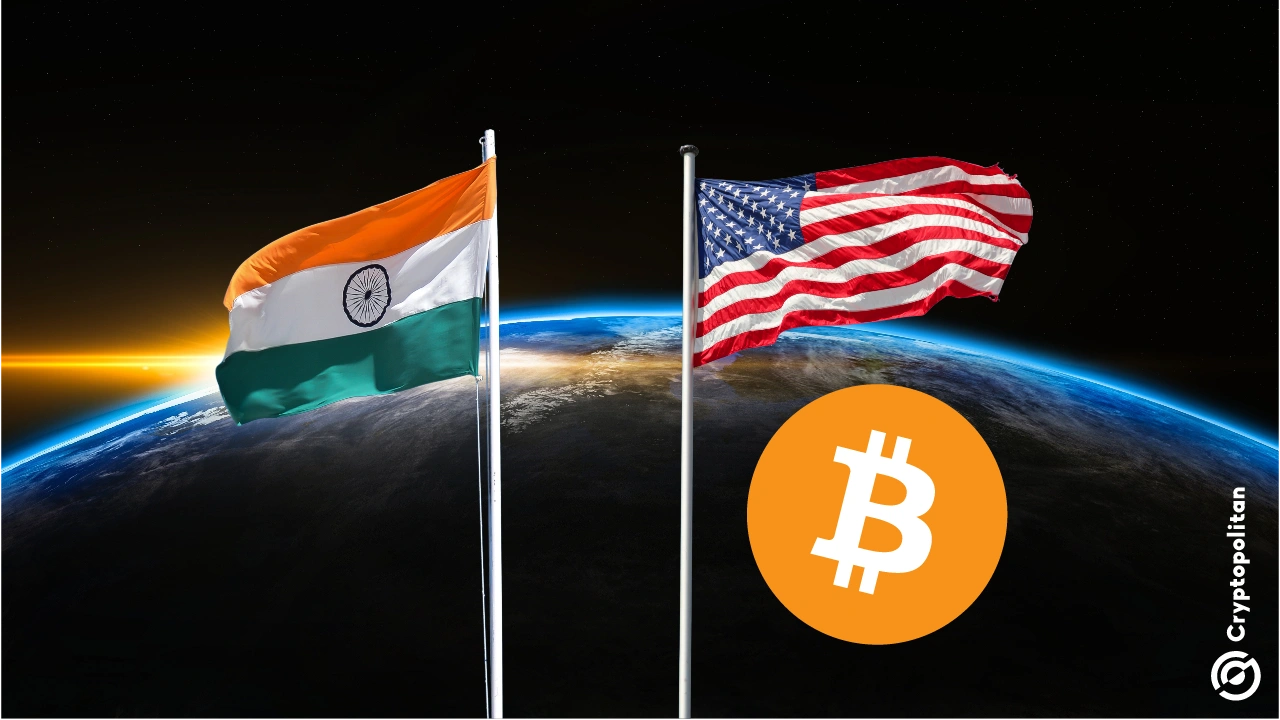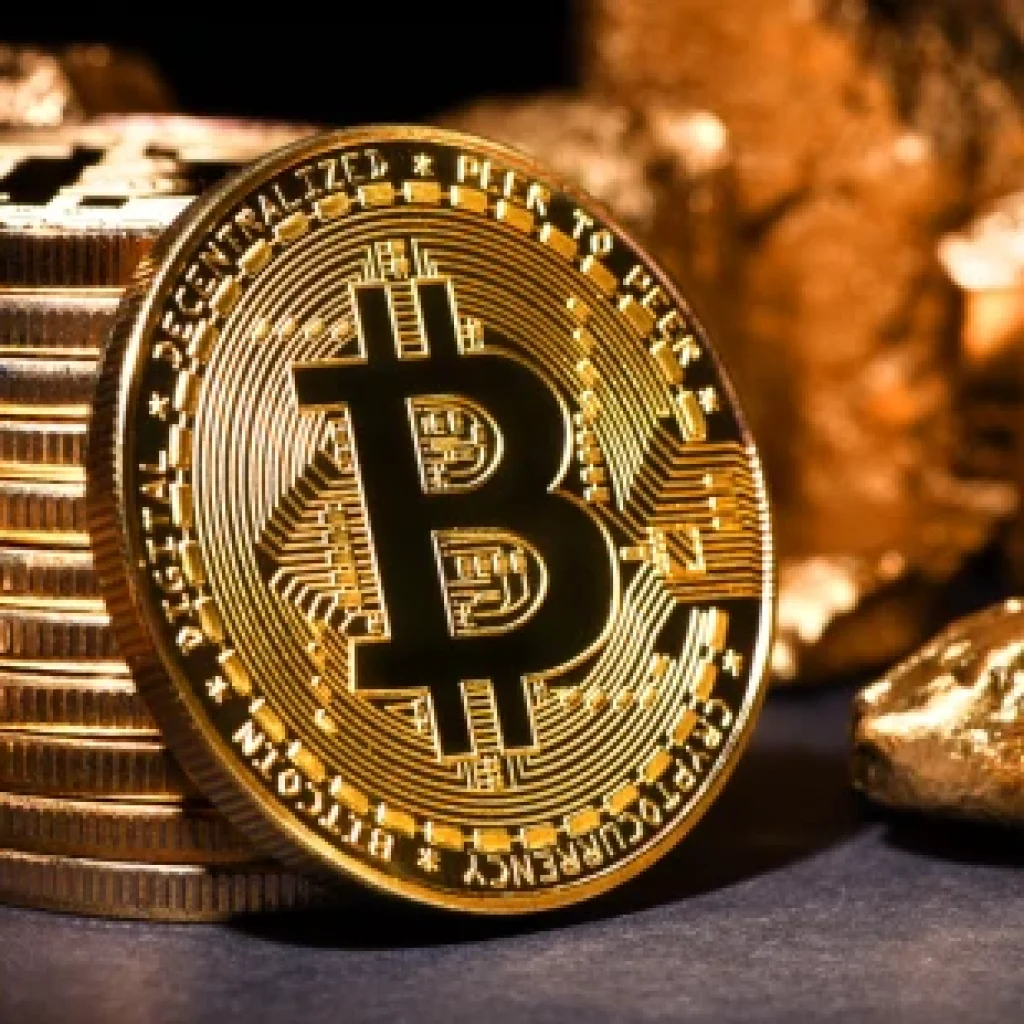India and America have been tight for decades. From counterterrorism to trade and holding back China’s influence in the Indo-Pacific, these two giants have stood side by side. Their partnership has only grown stronger over the years, especially after India was tagged as a “Major Defense Partner” of the United States in 2016. But when it comes to Bitcoin, they don’t see eye to eye.
America might go through with the idea of launching a national Bitcoin reserve soon, but India wouldn’t even flirt with it. And the reasons for this gap are all about politics, economics, and to be honest, plain common sense.
Bilateral bonds are stronger than ever
The friendship dates back to India’s independence from the British in 1947. Over the years, the two nations have found common ground on global security, economic ties, and shared democratic values.
Gallup polls show just how much Americans love India. In 2023, 70% of Americans had a favorable view of India. That’s not a fluke either. Over the past decade, these numbers have consistently hovered between 70% and 77%.
Indians feel the same way about America. After the fall of Afghanistan in 2021, a Morning Consult poll revealed that 79% of Indians viewed the U.S. favorably—higher than any other major country surveyed.
The numbers are equally strong in trade. The U.S. became India’s largest trading partner in 2021, while India is the U.S.’s seventh-largest.
American exports to India totaled $25.7 billion in 2017, with imports hitting $48.6 billion. India sends gems, textiles, IT services, and coffee to the U.S., while America ships over aircraft, fertilizers, and computer hardware. These are the building blocks of a healthy partnership.
Even defense ties are rock solid. The Quad—an alliance between India, the U.S., Japan, and Australia—is a prime example of their shared security goals. The U.S. Senate has even bent over backward to accommodate India’s purchase of Russian S-400 missiles to avoid sanctions.
Senators from both parties urged President Biden to waive penalties, pointing out how critical India is for U.S. dominance in South Asia and the Indian Ocean.
India’s cold shoulder to Bitcoin
Now let’s talk Bitcoin. The Reserve Bank of India (RBI) is dead set against crypto and keeps warning about the risks of financial instability, scams, and misuse for illegal activities. If Bitcoin can’t even buy you a chai in Mumbai, how can it back a national reserve?
The ambiguity around crypto laws in India doesn’t help either. For years, the government has danced around banning private cryptos altogether. Proposed legislation often leans toward heavy restrictions, creating massive uncertainty for investors.
But let’s say India does try to give Bitcoin a shot. The volatility alone could wreck its economy. Bitcoin’s value is a rollercoaster, and any country holding it in reserves risks losing billions overnight. For a nation with 1.4 billion people relying on stable economic conditions, that’s a gamble not worth taking.
Even if volatility wasn’t an issue, Bitcoin would still complicate India’s monetary policy. The RBI uses its reserves to manage inflation and currency value.
Bitcoin, being decentralized and detached from India’s economic performance, would throw a wrench into this system. No central authority controls Bitcoin, which sounds great for anarchists but is a nightmare for governments.
Strategic autonomy and geopolitical realities
Now India isn’t a country that likes being told what to do. Its foreign policy revolves around strategic autonomy—making its own choices while balancing relations with global powers. This was clear during the 2022 Russian invasion of Ukraine.
While the U.S. and its allies condemned Russia, India abstained from a UN vote against the invasion. The reason? Seventy percent of India’s arms come from Russia. For comparison, only 14% come from the U.S., and 5% from Israel.
India wasn’t about to alienate its biggest weapons supplier, no matter what anyone said. Plus, Prime Minister Narendra Modi and President Vlad Putin are close friends on a “personal level,” as we’ve reported before.
The same logic applies to Bitcoin. India doesn’t want its monetary policy dictated by a decentralized asset it can’t control. Allowing Bitcoin into its reserves could also trigger capital flight, where investors move their money out of India to avoid regulations or taxes.
This would sap liquidity from the Indian economy, making it even harder to manage financial stability. Technological issues add to the difficulty. Holding Bitcoin requires a robust infrastructure to prevent hacking and theft.
Remember the Mt. Gox disaster? Billions in Bitcoin vanished due to poor security. India isn’t ready for that level of risk. Unlike the U.S., which has established crypto exchanges and institutional support, India is still playing catch-up.
Public distrust and economic inequalities
Let’s not forget the people. Cryptocurrencies have an image problem in India. Trust in Bitcoin as a stable asset is low, and it would take years of education and outreach to change that.
For a country focused on eradicating poverty and improving financial literacy, Bitcoin isn’t even on the priority list. Keep in mind India’s population is insanely large.
Then there’s the issue of financial inclusion. Millions of Indians are unbanked or underbanked, meaning they don’t have access to traditional financial systems. Introducing Bitcoin, which requires internet access and a certain level of technical know-how, would only widen the gap between the haves and the have-nots.
India is already working to bring more people into the banking system. Pushing Bitcoin into the mix would only complicate things. While president Trump might see Bitcoin as a futuristic reserve asset, Modi sees it as a liability. For the strict leader, stability and control are non-negotiable.
A Step-By-Step System To Launching Your Web3 Career and Landing High-Paying Crypto Jobs in 90 Days.





